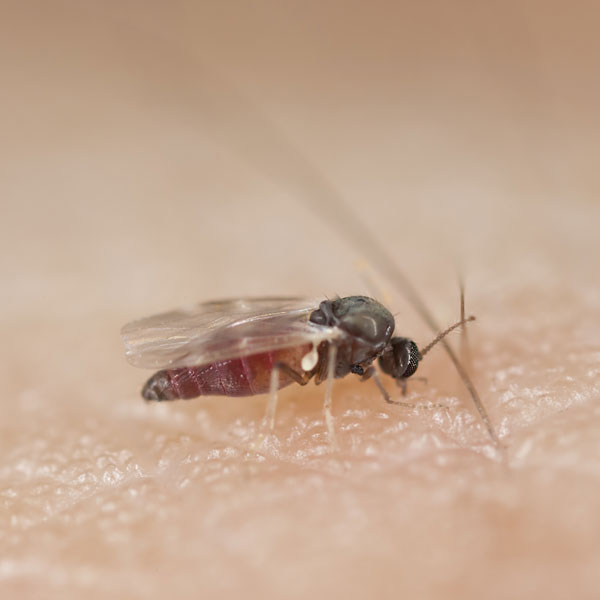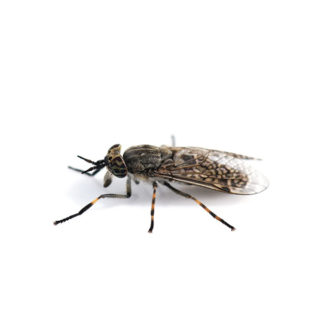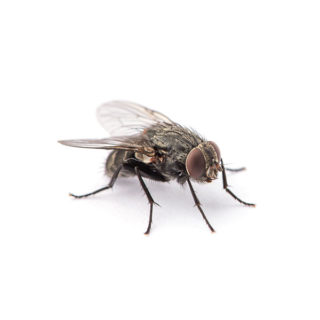Black Flies in Arkansas
Black flies are small, blood-sucking insects, found in many parts of the United States and Canada. Common names for this pest include buffalo gnats and turkey gnats, and they are known to fly around people’s heads, occasionally getting into eyes and ears, as well as crawling into the hair. Only the females are blood feeders and will readily bite humans and animals. Black flies may sometimes occur in enormous numbers in the late spring and early summer, particularly in the more northern latitudes.
Black Fly Habitat
Black flies breed exclusively in running water, and larvae and pupae develop in flowing, typically non-polluted water, with a high level of dissolved oxygen. The immature stages of black flies develop in oxygenated water sources, therefore adults are usually associated with slow-moving streams, creeks, or rivers where the immature stages develop. Flowing water does not necessarily imply white water rapids, but water must be moving. Water in lakes and ponds that are not flowing is unsuitable for black fly development.
Black Fly Behaviors, Threats, or Dangers
Black flies can be annoying biting pests, but none are known to transmit diseases to humans in the U. S. The bites of black flies cause different reactions in humans, ranging from a small puncture wound where the original blood meal was taken to a swelling that can be the size of a golf ball. Reactions to black fly bites are collectively known as “black fly fever” and include headache, nausea, fever, and swollen lymph nodes in the neck. Besides being a nuisance to humans, black flies can pose a threat to livestock. They are capable of transmitting a number of different disease agents to livestock, including protozoa and nematode worms, none of which cause disease in humans. If you are dealing with a black fly problem on your property, contact your local fly exterminators.
Need help with Black Fly control?
REQUEST A FREE PEST INSPECTION
"*" indicates required fields
*During normal business hours. After hours calls will be returned the next business day.



